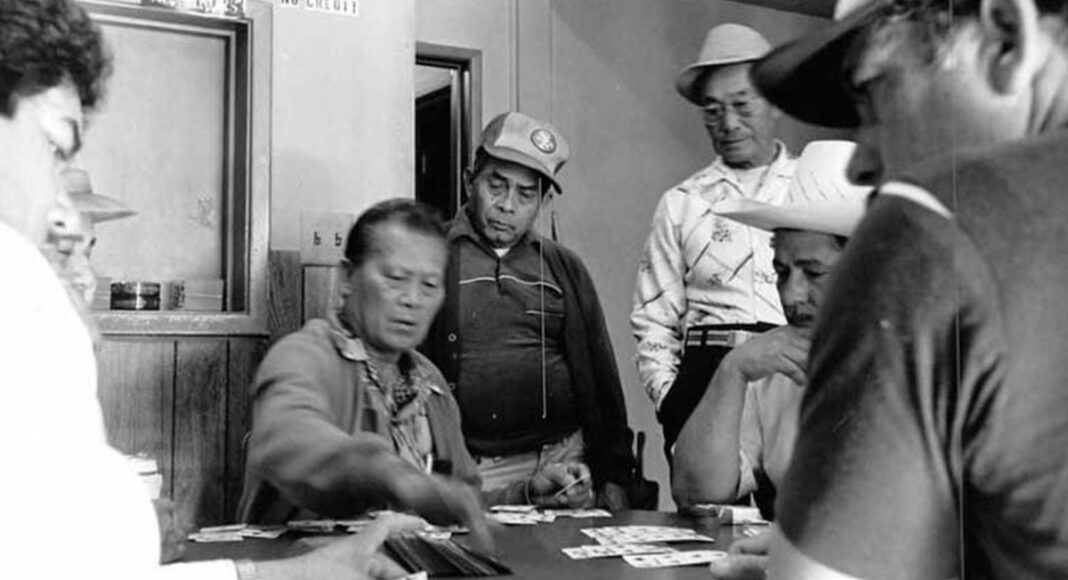October is Filipino American History Month, commemorating the first recorded presence of Filipinos in the continental United States in 1587.
The month was first introduced in 1992 by the Filipino American National Historical Society and was officially recognized by Congress in 2009.
Since then, communities throughout the U.S. have started to observe the historical moment, and this Saturday Watsonville will join in by hosting its inaugural Filipino American History Month festival.
“Other cities have had Filipino American History Month or Day celebrations in October,” says Roy Recio, lead organizer of the Tobera Project, a local initiative aiming to preserve and celebrate Watsonville’s Filipino history. “But we’ve never had one, despite being here for a long time. It’s been almost 100 years since we have been here, and we never really had the city acknowledge us until now.”
Included in that history is the 1930 anti-Filipino race riot in which hundreds of armed white men took to the streets of Watsonville, targeting and beating Filipino-American workers who they claimed were stealing their jobs and women, according to multiple news reports. The riots reached a head on the night of Jan. 20, when 22-year-old Fermin Tobera died after being shot on San Juan Road. The incident was a catalyst for more riots, instigated by white men around the state.
In a historic move in 2020, the Watsonville City Council approved a resolution that officially apologized to the local Filipino community.
The Tobera Project officially formed in 2019 and has since kickstarted a movement in Santa Cruz County. Together with researchers at UCSC, the Santa Cruz Museum of Art and History and other local groups, they created Watsonville is in the Heart, an ongoing digital archive chronicling the history of Filipino families in the Pajaro Valley.
This weekend’s festival is the Tobera Project’s latest endeavor.
“The festival is a big deal to us as it will show that we are not invisible or unimportant,” Recio says. “Our blood, sweat and tears have helped to build the Pajaro Valley. It’s going to be a grand time, we’re going to put our flag in the ground. We’re going to embrace our loved ones and really just celebrate our existence and history in Watsonville.”
The festival will take place in Watsonville City Plaza from 12-5pm. Things kick off with a set by comedian Allan Manalo, followed by traditional southern Philippines music by Kulrura Kapwa. Watsonville Mayor Ari Parker will lead a special presentation for the event’s Grand Marshall, Kristopher Bayog at 1:15pm.
Filipino jazz band Autonomous Region will perform at 1:30pm, and then folk-rock singer Francis Ancheta will perform a set of songs, including one with lyrics Recio penned about his father. Spoken word poet Morielle Mamaril and artist Joseph Santiago LaCour will present their work at 3pm. The rest of the afternoon will include a live set by DJ Lito.
Food will be available to purchase from food vendors, including Tita Lalaine’s, La Boba & El Grano De Cafe, and Adobo To Go and the Lumpia Lady.
Recio says that the Tobera Project had approached the City and pitched the idea of the event. He named Parker, Watsonville City Manager Rene Mendez, as well as Parks and Community Services’ Nick Calubaquib and Jessica Beebe as big supporters of the project, and also praised program coordinator Amanda Gamban as a main driver of the festival.
“Amanda has been amazing,” Recio says. “This event couldn’t have happened without her. She took on a lot of the logistical responsibilities. We’re really grateful for her.”
The festival is the first of its kind in Watsonville. But Recio says they hope to make the festival an annual event.
“When we started the [Tobera Project], we wanted to signify our presence and share our culture with the community,” he says. “We have prospered and thrived here for many generations. There have been struggles of course, but we really have been one of the backbones in the community that built the Pajaro Valley. And we want to celebrate that.”













